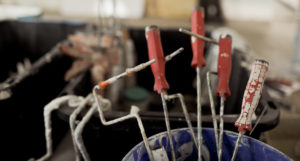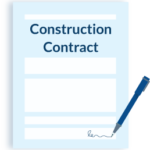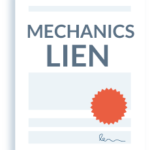
The novel coronavirus COVID-19 has begun to impact the construction industry in many ways. While the full depth and breadth of the impacts are still unknown, it is clear that job delays or stoppages are widespread and will continue. Contractors, subcontractors, property owners, and suppliers must all take steps to prepare for coronavirus-related job delays in order to protect their businesses.
The three steps outlined below provide a framework for construction companies to weather coronavirus job delays, and emerge in the best possible position.
 Step 1: Examine your contract
Step 1: Examine your contract
Force majeure and suspension of work
One of the first questions a contractor will have when a coronavirus job delay occurs is: “Who is going to bear the risk and cost for this coronavirus delay?” or, similarly, “Does the coronavirus excuse a project delay?”
The answers to these questions are generally found in your contact, and are often closely related. Whether the coronavirus excuses or otherwise allows for temporary delays due to the coronavirus pandemic, and who is responsible, is likely determined by the contract’s force majeure clause. While standard-form construction contract templates, like the AIA form A201 contain general force majeure clauses that likely would grant construction participants a time extension due to the coronavirus pandemic, these clauses are often revised and may impose additional duties on the contractor.
Generally, a force majeure clause states that a contractor is not liable for damages associated wth delays that arise from unforeseeable circumstances outside of the contractor’s control. While some contracts, like those set forth by the FAR, or standard ConsensusDocs, specifically contemplate “epidemics” or “pandemics” or “quarantines” in their force majeure provisions, other contracts do not and coronavirus-related delays would need to fall under a catch-all provision. In the AIA standard contract, for example section 8.3.1 states that:
“If the Contractor is delayed at any time in the commencement or progress of the Work by . . . other causes beyond the Contractor’s control . . . then the Contract Time shall be extended by Change Order for such reasonable time as the Architect may determine.” (Emphasis added.)
Usually, determining whether a force majeure event covered by such a clause has occurred requires determining the answer to three questions:
- Is the event beyond the control of the party?
- Has the party’s ability to perform its contractual obligations been prevented due to the event?
- Has the party sufficiently attempted to mitigate the event and damages?
However, as stated above, these clauses are routinely modified from standard form, and transfer certain risks to the contractor.
And, not all contracts contain a force majeure clause at all. If no such clause exists in your specific contract, there may be significant questions whether stopping work is justified, and/or with respect to who will bear the cost of stoppages.
Notice provisions
Most contracts contain provisions specifying rules and requirements related to providing notice when a party becomes aware of an event likely to adversely impact the time or cost of compliance with the completion of the work. In many cases, these notice provisions specify time limits, recipients, and service method for providing proper notice. Ensuring compliance with these requirements is critical to retaining your rights and limiting potential liabilities.
As soon as you know that your performance under the contract may be impacted, proper notice should be given. It’s important to not rely on verbal statements, and to double check how the contract requires notices to be given. Giving written notice creates a written record of your compliance with the contract provisions, and both puts you in a better position and allows for other interested parties to make better-informed business decisions.
Step 2: Review your insurance
Now would be a good time to review your insurance coverage, and check to see if you may have coverage for some of the liabilities incurred due to a COVID-19 induced project delay. While many insurance policies do not cover business loses arising from “acts of God” or provide coverage for monetary harm removed from the actual project, some “business interruption,” “builder’s risk,” “trade disruption” or “supply chain risk” policies or endorsements may be applicable to certain coronavirus impacts.
Although the wording of each policy or even each specific coverage endorsement must be individually scrutinized, some of the specialized insurance types listed above may provide for coverage with respect to at least some of the potential losses incurred because of coronavirus job delays. Specifically, “business interruption,” “trade disruption,” or “supply chain risk” coverages afford some protection for losses associated with project delays or disruptions to at least some extent.
While it seems like a no-brainer that COVID-19 related project delays are something that would result in a business interruption, there are some general policy requirements that can potentially throw that into some doubt. Usually, there is some physical damage requirement in order for coverage to apply. In some cases, losses arising from diseases or viruses are specifically excluded.
Contractors should examine their insurance policies or consult with their brokers evaluate whether their insurance policies potentially provide coverage for losses attributable to coronavirus-caused delays. And, if no such coverage exists, it may be worth considering getting some. Insurance Services Office (ISO), an insurance advisory organization, has recently declared that it will provide business interruption endorsements in response to the coronavirus.
Finally, just like the concerns related to the contract itself, discussed above, insurance policies generally have strict notice timing provisions, and a delay in providing proper notice can mean no recovery, even when otherwise appropriate coverage exists.
 Step 3: Protect and implement lien rights
Step 3: Protect and implement lien rights
The real and fundamental worry with respect to coronavirus job delays and stoppages has to do with delayed or nonexistent payment. Construction industry participants need to get paid, and work stoppages or problems related to things outside of their own control causing payment delays are nightmares.
Because of this, it’s time to get strict about protecting lien rights, and get less bashful about pulling the lien trigger when a payment is delayed. In this environment, as soon as payment begins to drag it’s time to think about making the decision to file a lien to secure payment. Cash is the life-blood of construction companies, and in the coronavirus environment, it’s more important than ever to be cash-protective and use all available remedies to ensure that your coffers remain full.
Now is the time
Top construction attorneys all over the country agree that “now is the time to start sending your pre-lien notices and filing liens” as the most effective and cost-efficient way to increase the probability of being paid.
According to Jason Lambert, “It’s more important now than ever to make sure you’re properly noticing and liening jobs…those who secured their lien rights will be the first ones taken care of…those who do not, will get what’s left.”
Making sure that all projects are protected by sending notice, and that liens are used more liberally as a payment protection measure, is a good step in making sure that project delays don’t end up sinking your business.
Conclusion: A coronavirus job delay doesn’t need to sink your business
The truth is that COVID-19 is resulting in job delays now, and will continue to do so. Construction companies will be impacted by coronavirus job delays, and need to understand their plan of action to move forward.
Taking the three steps outlined above can help contractors survive coronavirus job delays and remain in the best possible position to survive and thrive through these uncertain times.

 Step 1: Examine your contract
Step 1: Examine your contract

 Step 3: Protect and implement lien rights
Step 3: Protect and implement lien rights
